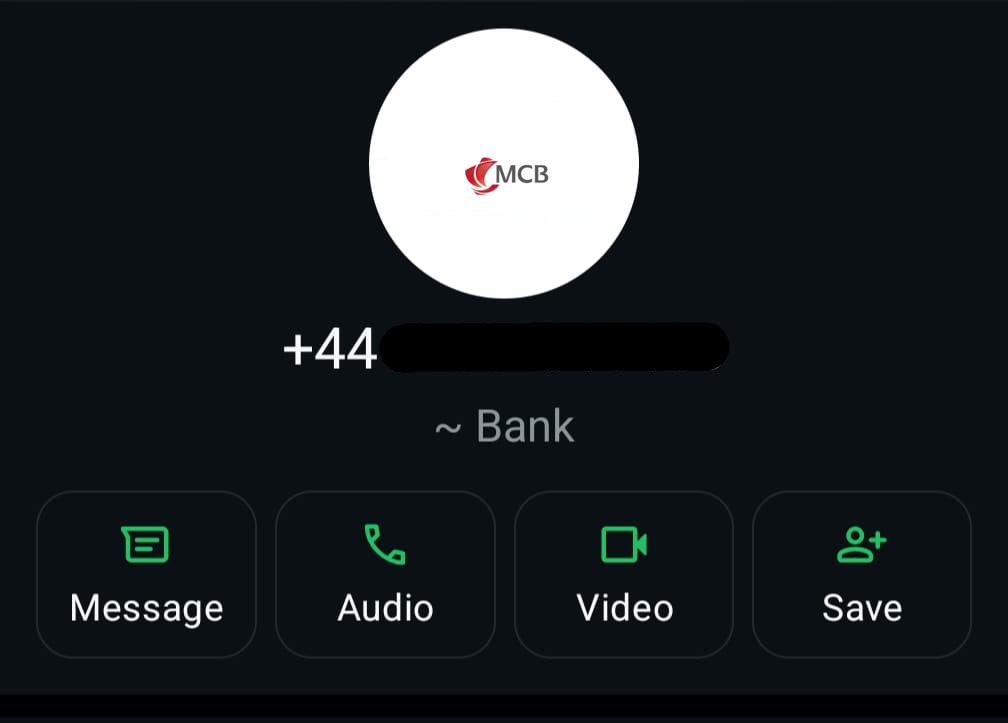Scammers are making WhatsApp calls to customers asking for their credentials

There has been a significant surge in scams targeting bank clients in Seychelles via WhatsApp. Scammers are impersonating bank staff to steal your personal and financial information.
These sophisticated fraudsters use official-looking bank logos and seemingly professional language to gain your trust. Their messages often create a false sense of urgency, such as a security alert or an account blockage, to pressure you into immediate action. Their ultimate aim is to trick you into revealing sensitive information like your PIN, online banking passwords, or card details. Remember, sharing these details is like handing over the keys to your bank account. The consequences can be swift and severe, leading to significant financial theft.
How the Scam Works
Scammers are using sophisticated social engineering tactics to appear legitimate. Be aware of their methods:
Impersonation: They will call you on WhatsApp, often using a local bank's logo as their profile picture to look more convincing.
False Pretence: The scammer typically claims to be from the bank's fraud or cybersecurity department, creating a sense of urgency.
The Card Number Trick: They may provide the first few digits of your bank card number and ask you to confirm the remaining digits as "proof" of identity. This is a ruse. They only know the generic Bank Identification Number () common to all cards from your bank; they do not have your full card number.
Information Phishing: Once they gain your trust, they will ask for more sensitive details, such as the three-digit security code (CVV/CVC) on the back of your card, your card's expiry date, or one-time passcodes () sent to your phone.
With this information, scammers can make unauthorised online purchases or drain funds from your account.
What Your Bank Will NEVER Ask For
A legitimate bank or its employees will NEVER contact you to ask for:
Your full debit or credit card number.
The 3-digit security code (CVV/CVC) from the back of your card.
Your card's PIN (Personal Identification Number).
Your online banking password or login credentials.
A one-time passcode () sent to your phone or email.
If someone asks for any of this information, it is a scam.
What To Do If You Get a Suspicious Call
Hang Up Immediately: Do not engage with the caller. Do not confirm any personal details, not even your name.
Block the Number: Block the scammer's number on WhatsApp to prevent further contact.
Contact Your Bank: Report the incident to your bank immediately using the official phone number listed on the back of your bank card. Do NOT call back the number that contacted you on WhatsApp.
Report What Was Shared: If you have revealed any information, tell your bank exactly what was shared so they can take immediate action to protect your account, such as blocking your card.
Stay vigilant and help protect our community by sharing this warning with friends and family.